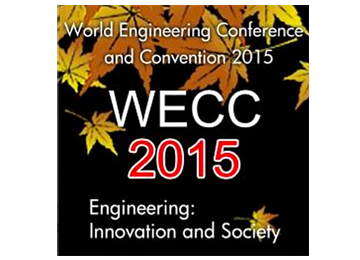
On December 3, 2015, at the World Engineering Conference and Convention in Kyoto, Japan, the General Assembly of the World Federation of Engineering Organizations (WFEO) unanimously approved the Model Code of Practice: Principles of Climate Change Adaptation for Engineers.

On December 3, 2015, at the World Engineering Conference and Convention in Kyoto, Japan, the General Assembly of the World Federation of Engineering Organizations (WFEO) unanimously approved the Model Code of Practice: Principles of Climate Change Adaptation for Engineers.
The Model Code is intended to inform, to provide guidance, and to encourage engineers and consulting engineering firms that provide infrastructure planning, design and construction services to be proactive in managing the impacts of a changing climate on engineered systems such as civil infrastructure and buildings.
A product of the WFEO's Committee on Engineering and the Environment, the Model Code was developed under the leadership of Canadian engineers Darrel Danyluk, FEC, P.Eng, and David Lapp, FEC, P.Eng. Danyluk is WFEO Vice President and Chair of the Committee, while Lapp is Secretary of the Committee and also Engineers Canada’s Practice Lead for Engineering and Public Policy.
“There is clear scientific knowledge that indicates that the climate is changing and will continue to change,” said Lapp.
“But legislation and regulation in the field of climate change adaptation is sparse. This Model Code aims to fill this gap.”
After its unanimous approval in Kyoto in the first week of December, the Model Code was then provided as part of the WFEO's contribution to COP-21 the next week in Paris, France.
Now that it has been adopted by the WFEO General Assembly, member organizations may adopt the Model Code themselves in one of three ways: by adopting it as written; by adopting it with modifications to suit their individual circumstances and jurisdictions; or by using it as a source document to develop their own country-specific guidance.
WFEO Model Codes of Practice are meant to provide objective guidance to individual engineers and to national associations on responsible engineering practice. They are also meant to inform United Nations (UN) organizations and international financial institutions.


